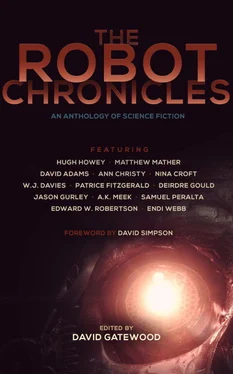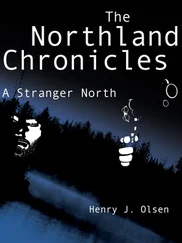So, is it the end of the world? No. Yes. Maybe. It’s certainly the end of the world as we know it. All we can say for sure is, we can’t say anything for sure, and that’s where our sci-fi authors come in. In Ray Bradbury’s most famous novel, Fahrenheit 451 , Captain Beaty warns Montag of the danger of books, telling him, “… the books say nothing ! Nothing you can teach or believe. They’re about nonexistent people, figments of imagination if they’re fiction. And if they’re nonfiction, it’s worse, one professor calling another an idiot, one philosopher screaming down another’s gullet. All of them running about, putting out the stars and extinguishing the sun. You come away lost.” Of course, Bradbury is simply echoing the hollow arguments of the brutalist book-burning regimes of Hitler and Mussolini, which, in 1952, were not far back in the rearview mirror. Fahrenheit 451 stands as Bradbury’s proclamation, indeed the most powerful proclamation in the history of literature, of the very power of the medium of the written word itself. It’s why books were feared by tyrants, because books have the power to teach, and authors therefore have the power to do what Joseph Conrad said was the job of all writers: “to make you see.”
It isn’t the author’s job to tell you what the future will be, or to tell you what’s right or wrong, but only to tell you what could be. The authors in this collection are letting you know what could be on the horizon, what technology will be possible in a very short period of time, and they’re helping you cultivate your imagination and understanding of the most complex topic we can tackle: the future.
In a recent email exchange, after I told him of his influence on my writing, Ben Goertzel, one of the world’s foremost researchers on the topic of Artificial General Intelligence, related to me that science fiction “is, of course, what first stimulated me to think about AGI, so it’s nice to see my own thinking on the topic seep into the SF world!” Such is the relationship between scientists and engineers and science fiction authors—we feed each other inspiration, the scientists and engineers use this to go and build the world, while the authors use this to tell the world what’s coming and to inspire a new generation of world-builders. And make no mistake: that’s exactly what Sergey Brin, Larry Page, Ray Kurzweil, and Ben Goertzel are. They’re world-builders, inspired by the most important literature in the history of the world.
And because information processing technology is leaping forward at an exponential rate thanks to Moore’s Law (the doubling of processing power in computers every eighteen months) we’ve reached a new and uncharted moment in the relationship between world-builders and authors: the world-builders have not only caught up to science fiction, but in some instances they’ve surpassed it. Google’s Calico research wing has the stated goal of “solving death.” Google acquired DeepMind a few months ago, which is an artificial intelligence company with the simple mission statement: “to build general-purpose learning algorithms.” And in the last year, Google has purchased at least eight robotics companies. There can be little doubt that Google is building a future of AI and robots, or that such a future is coming soon enough that most of the people reading this introduction will live to see it.
Which brings us back to why The Robot Chronicles is so important. The talented writers who’ve contributed to this collection know what their job is. It’s to “make you see.” Not to tell you what to think, but to make you question what you might believe, to reconsider, perhaps even to change your view. Fahrenheit 451 ’s Captain Beaty proclaimed that this power of books was a terrible thing: “What traitors books can be! You think they’re backing you up, and then they turn on you. Others can use them, too, and there you are, lost in the middle of the moor, in a great welter of nouns and verbs and adjectives.” But great readers know that this is perhaps the single greatest joy of reading a great book, to have one’s thoughts truly provoked, to perhaps even change one’s mind. As William Blake wrote, “The man who never alters his opinion is like standing water, and breeds reptiles of the mind.” The Robot Chronicles may not change your views, but these tales will certainly provoke your thoughts, make you question your opinions, and keep the waters of your mind flowing.
My series of novels, Post-Human , is at over a quarter million downloads and counting in just two and a half years, all without a single push from Amazon, with which it is exclusively published. How could this be? How could a series of science fiction novels be found by that many readers, shared with that many others, and inspire the incredible following of enthusiastic and kind people that it has amassed in just over two years? The answer puzzles some of the dinosaurs of science fiction, especially most (but not all) of the publishing execs and the film world. But at this moment, Post-Human is in pre-production for a major motion picture, my work is being turned into video games and comic books, and those precious readers and publishers who’ve taken a chance on me have discovered that they’re part of the avant-garde of the most seismic shift in the history of sci-fi, a shift that is mirroring the most seismic shift in the history of our species. The simple truth is this: our future will not be one of laser pistols and intergalactic councils. Our future, if we reach it, will be one of AI, immortality, virtual reality, and vastly enhanced intelligence. Science fiction has entered the era of post-humanity, because as the technological singularity approaches us in reality (unless we’re wiped out first by our own doing or an unforeseen natural disaster), it has become clear that, if science fiction wishes to remain relevant, it must tell the story of AI and robotics, and of a time sure to come soon when an unenhanced human brain is no match for the machines Google and others are working so hard to build. The authors of The Robot Chronicles understand this new landscape (which has an ironically classic feel to it thanks to the work of our predecessors, such as Isaac Asimov and other pioneers who saw far into the future). Publishers and film execs that stick to reboots and rehashing should be put on notice: you’re a dinosaur, you’ve bred reptiles of the mind, and you’re about to go extinct.
But will the rest of us go extinct too? That’s the defining question of this new era. Anyone who tells you they have the answer is guilty of massive and unfounded hubris. Even artificial brain-builders know there’s never been anything more powerful. Ray Kurzweil has said that keeping AI “friendly” is “the great challenge of the twenty-first century.” And even if we’re successful, what about the massive transformation in everyday human life in the years when robots take, as some have predicted, fifty percent of current jobs? Sergey Brin admits this is likely, saying, “it’s kinda true… I do think that a lot of the things that people do have been—over the past century—replaced by machines and will continue to be.” With Google’s self-driving cars on the horizon, the writing is on the wall for taxi and truck drivers. There are solutions to problems like that, however. Nano-manufacturing should bring the costs of products down dramatically, and, as Kurzweil has predicted, most things in the physical world will become information files that can simply be fabricated in people’s homes (think 3D printers, but on the nano-scale). If we take care of our material needs, then a world where robots are serving us and we’re unemployed doesn’t seem so bad.
Читать дальше






![Сидней Баундс - The Robot Brains [with w_cat]](/books/196989/sidnej-baunds-the-robot-brains-with-w-cat-thumb.webp)





